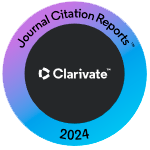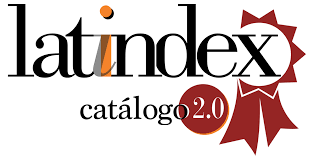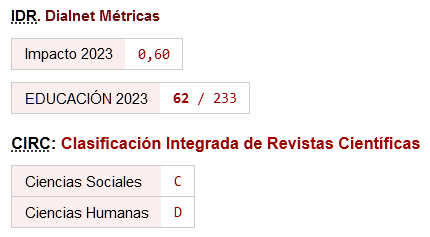Artificial Intelligence in MOOCs
Study of profiles and their socio-educational potential
DOI:
https://doi.org/10.46661/ijeri.11110Keywords:
Artificial Intelligence, Massive Open Online Courses, AI learning profile, AI educational value profile, Digital Citizenship EducationAbstract
In a climate of media interest in artificial intelligence (AI), growth of services and applications associated with this technology and intense debates on its use, the educational offer on this topic is in full bloom. In this sense, focusing attention on MOOCs (massive open online courses), an exponential growth of the educational offer on AI has been observed in recent years. This research is part of a broader investigation into the technical and pedagogical dimensions of AI MOOCs. The main objective of this study is to understand the predominant profile of AI MOOCs. Using a statistically representative sample of 292 MOOCs and based on a category system on AI content, a descriptive and factorial statistical analysis of the data is carried out. The analysis concludes that the three predominant MOOC profiles are: focused on AI coding, focused on AI learning and focused on AI educational value.
Downloads
References
Clarisó, R. (2024). Guía de inteligencia artificial para docentes. The conversation https://theconversation.com/guia-de-inteligencia-artificial-para-docentes-221624
Council of Europe (2023). 26th session of the Council of Europe Standing Conference of Ministers of Education. https://www.coe.int/en/web/education/26th-session-of-the-standing-conference-of-ministers-of-education
Delgado-Algarra, E. J. (2020). ITCs and Innovation for Didactics of Social Sciences. IGI Global. http://doi.org/10.4018/978-1-7998-2882-2
Delgado-Algarra, E. J., & Lorca-Marín, A. (2023). ¿Cómo debe ser un maestro de ciencias en tiempos de ChatGPT? The conversation https://theconversation.com/como-debe-ser-un-maestro-de-ciencias-en-tiempos-de-chatgpt-209825
Delgado-Algarra, E. J., Martín-Cáceres, M., Cuenca-López, J. M., & Ibañez-Etxeberria, Álex. (2024). Temáticas controversiales en docencia universitaria: análisis DAFO y CAME aplicado para la mejora educativa. Revista Colombiana De Educación, (91), 56–75. https://doi.org/10.17227/rce.num91-16455
Delgado-Algarra, E. J., Roman Sánchez, I. M., Ordóñez Olmedo, E., & Lorca-Marín, A. A. (2019). International MOOC trends in citizenship, participation and sustainability: Analysis of technical, didactic and content dimensions. Sustainability, 11 (20), 5860. https://doi.org/10.3390/su11205860
Downes, S. (2012). The Rise of MOOC. 2012. http://www.downes.ca/post/57911
European Parliament (2024). Regulation (EU) 2024/1689 of the European Parliament and of the Council of 13 June 2024 laying down harmonised rules on artificial intelligence and amending Regulations (EC) No 300/2008, (EU) No 167/2013, (EU) No 168/2013, (EU) 2018/858, (EU) 2018/1139 and (EU) 2019/2144 and Directives 2014/90/EU, (EU) 2016/797 and (EU) 2020/1828 (Artificial Intelligence Act). https://eur-lex.europa.eu/legal-content/EN/TXT/?uri=CELEX:32024R1689
Ferrari, A. (2013). DIGCOMP: A Framework for Developing and Understanding European Commision.
González-González, C.S. (2023). El impacto de la inteligencia artificial en la educación: transformación de la forma de enseñar y de aprender. Revista Qurriculum, 36, 51-60. https://doi.org/10.25145/j.qurricul.2023.36.03
Infante-Moro, A., Infante-Moro, J.C., Torres-Díaz, J.C., & Martínez-López, F.J. (2017). Los MOOC como sistema de aprendizaje en la Universidad de Huelva (UHU). IJERI: International Journal of educational Research and Innovation, 8, 163–174.
Lan, Y. (2024). Through tensions to identity-based motivations: Exploring teacher professional identity in Artificial Intelligence-enhanced teacher training. Teaching and Teacher Education, 151, 1-15. https://doi.org/10.1016/j.tate.2024.104736
Lui, B.L., Morales, D., Chinchilla, J.F.R., Sabzalieva, E., Valentini, A., Vieira, D., & Yerovi, C. (2023). Harnessing the Era of Artificial Intelligence in Higher Education. A Primer for Higher Education Stakeholders. UNESCO.
Miao, F., Holmes, W., Huang, R., & Zhang, H. (2021). AI and Education. Guidance for Policy Makers. UNESCO.
Mishra, P., & Koehler, M. J. (2006). Technological Pedagogical Content Knowledge: A new framework for teacher knowledge. Teachers College Record 108 (6), 1017-1054. https://doi.org/10.1111/j.1467-9620.2006.00684.x
Mohammed, P., & Watson, E.N. (2019). Towards Inclusive Education in the Age of Artificial Intelligence: Perspectives, Challenges, and Opportunities. In J. Knox, Y. Wang and M. Gallager (Eds.). Artificial Intelligence and Inclusive Education (pp. 17–37). Springer. https://doi.org/10.1007/978-981-13-8161-4_2
Moral-Sánchez, S. N., Ruiz Rey, F. J., & Cebrián-de-la-Serna, M. (2023). Analysis of artificial intelligence chatbots and satisfaction for learning in mathematics education. IJERI: International Journal of Educational Research and Innovation, 20, 1–14. https://doi.org/10.46661/ijeri.8196
Pappano, L. (2012). The Year of the MOOC. The New York Times, 2 November 2012. https://www.nytimes.com/2012/11/04/education/edlife/massive-open-online-courses-are-multiplying-at-a-rapid-pace.html
Pelletier, K., Robert, J., Muscanell, N., McCormack, M., Reeves, J., Arbino, N., & Grajek, S. (2023). 2023 EDUCAUSE Horizon Report. Teaching and Learning Edition. EDUCAUSE.
Richarson, J. & Milovidov, E. (2019). Digital Citizenship Education Handbook. Council of Europe.
Terras, M.M., & Ramsay, J. (2015). British Massive Open Online Courses (MOOCs): Insights and Challenges from a Psychological Perspective. Journal of Educational Technologies, 46, 472–487. https://doi.org/10.1111/bjet.12274
UNESCO (2021). Artificial Intelligence. https://www.unesco.org/en/artificial-intelligence
Zhai, X., Chu, X., Chai, C. S., Jong, M. S. Y., Istenic, A., Spector, M., Liu, J. Yuan, J. & Deng, H. (2021). A review of artificial intelligence (AI) in education from 2010 to 2020. Complexity, 1, 1-18. https://doi.org/10.1155/2021/8812542
Zhu, M., Sari, A. & Lee, MM (2018). A systematic review of research methods and topics of the empirical MOOC literature (2014–2016). Internet and Higher Education, 37 (1), 31-39. http://dx.doi.org/10.1016/j.iheduc.2018.01.002
Zurita, P. L.S., Aguilar Mora, G. C., Crespo Castillo, O. S., & Carranco Madrid, S. D. P. (2024). Inteligencia artificial y educación inclusiva: Herramienta para la diversidad en el aula. Revista Social Fronteriza, 4(2), e215. https://doi.org/10.59814/resofro.2024.4(2)215
Published
How to Cite
Issue
Section
License
Copyright (c) 2024 Emilio José Delgado Algarra, José Antonio Vela-Romero, Irene M. Palomero Ilardia, María Montserrat Pastor Blázquez

This work is licensed under a Creative Commons Attribution-NonCommercial-NoDerivatives 4.0 International License.












